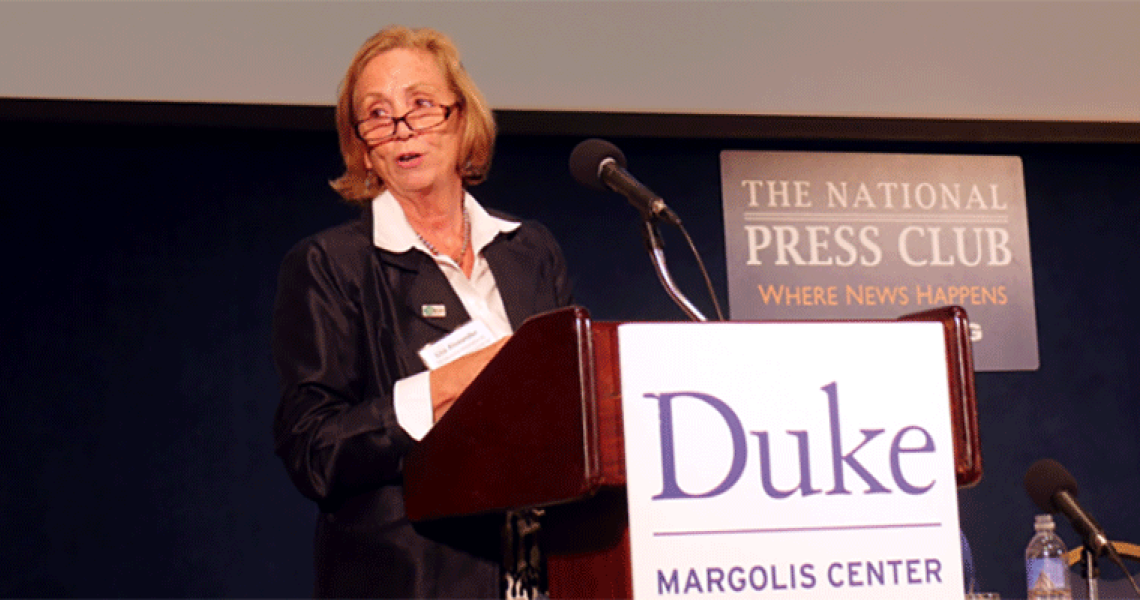Lisa Mustone Alexander, EdD, MPH, PA-C, proudly represented PA education when addressing health care stakeholders on OUD.
The Duke Margolis Center for Health Policy, under a cooperative agreement with the FDA, recently held a symposium on opioid use disorder (OUD) for health care stakeholders. The event, “Expanding Access to Treatment for Opioid Use Disorder: Provider Perspectives on Reducing Barriers to Evidence-Based Care,” sought to facilitate meaningful discussion among experts about the use of medications to treat OUD and raise awareness of the need to reduce stigma associated with OUD as well as expand access to medication-assisted treatment (MAT).
After providing an overview of the basic pharmacology associated with methadone, buprenorphine, and naltrexone as MAT options, Alexander presented evidence in favor of using MAT as part of a continuum of care for addressing OUD, stressing the importance of maintaining an individualized care approach when prescribing any of these medications for patient use.
She also described the importance of securing permanent waiver eligibility for PAs and NPs upon completion of 24 hours of mandated training. Following continuous advocacy by PAEA, AAPA, and our nursing colleagues, this provision was included in the SUPPORT for Patients and Communities Act, which is expected to be signed into law by President Trump in the coming weeks.
Through highlighting the positive impact that MAT can have on reducing opioid-related deaths, Alexander reinforced the significance of efforts such as PAEA’s MAT Waiver Training Initiative. A poll of those who attended the workshop, both in person and via webcast, revealed that 41 percent cited the need for additional training or education as the biggest challenge for health systems and providers in implementing a coordinated approach to OUD treatment. These polling results offer further confirmation of PAEA’s MAT Waiver Training Initiative, designed to overcome this exact barrier.
“I felt honored to be included in the program. It was great exposure for PAEA and provided me the opportunity to meet a diverse group of individuals from the policy, clinical, advocacy, and education sectors,” said Alexander. “These are important events for our association because they elevate our visibility to a broad group of stakeholders.”
Janet Woodcock, director of the Center for Drug Evaluation and Research at the FDA, and Admiral Brett Giroir, United States assistant secretary for health in the Department of Health and Human Services, also addressed the group as keynote speakers.
We thank Alexander for ensuring that PAEA had a voice in the chorus of health professionals calling for active solutions to resolve what Admiral Giroir described in his presentation as “the largest public health crisis of our time.”
For more information on PAEA’s MAT Initiative, please contact MAT Initiative Project Director John Lopes at jlopes [at] PAEAonline [dot] org (jlopes[at]PAEAonline[dot]org), or visit our MAT Waiver Training Initiative resource page.
